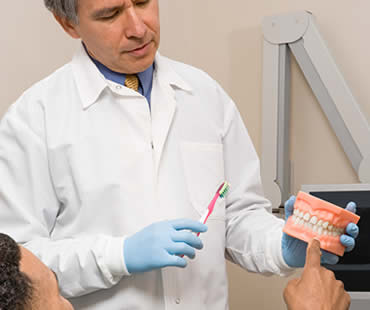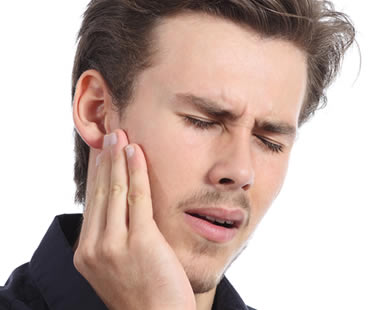
by Dr. Adkins | Sep 24, 2021 | Blog, Dental Topics 1, Family Dentist
If you haven’t been to the dentist in a while, you may not recall the process for a regular checkup. These visits are an important part of your oral health care. If you are in good dental health, your dentist will probably suggest twice-yearly visits. Individuals with gum disease or other oral health concerns may need to schedule more frequent appointments. Feel free to ask your dentist questions or raise concerns at the visit.
Your dental checkup will usually include:
• Full Health History
Because oral health affects your overall wellness, your dentist will want to have a complete picture of your whole situation. A member of the dental team will ask you questions and gather relevant details about your present status. Make sure to provide helpful information like current medications and any pressing issues.
• X-Rays
Typically, your dentist will take X-rays about once a year. These images provide a clear view of your teeth and gums. Often, X-rays will identify problems, like impacted teeth, cysts, abscesses, or decay between teeth that might otherwise go undiagnosed.
• Complete Evaluation
During your checkup, the dentist will perform a periodontal assessment, bite analysis, and tooth-by-tooth inspection. If the dentist discovers a problem, your provider will make treatment recommendations to address the issue and restore your oral health.
• Thorough Cleaning
If everything checks out, the hygienist will typically remove plaque and tartar build-up from your teeth. At this time, the hygienist may also polish and floss teeth to refresh your smile.
Our dental office is located in McDonough

by Dr. Adkins | Aug 6, 2021 | Blog, Dental Topics 1, Family Dentist
You may know all about basic dental care. Most people can tell you about the importance of brushing twice a day and flossing regularly. If you asked friends and family, they could probably list the virtues of eating whole grains, lean meats, and green vegetables to keep teeth and gums healthy. The majority of individuals, though, probably don’t know these fun facts:
- Approximately 33 percent of people squeeze their toothpaste from the middle.
- As early as 700 BC, people carved false teeth out of animal bones.
- During ancient times, the barber cut your hair, gave you a shave, and extracted injured teeth.
- Each year, Americans fork out more money on hair care and lottery tickets than they do on their dental health.
- In 1994, a West Virginia inmate scaled a wall and escaped prison using a rope made from dental floss.
- Modern toothpaste was first manufacture by the Colgate Company.
- People brushed their teeth with twigs or their fingers before toothbrushes were invented.
- Poor individuals sold their teeth to the wealthy during the 18th century and these people used them as replacement teeth.
- Surprisingly, cows don’t have upper teeth.
- The Mexican version of the Tooth Fairy, called the Tooth Mouse, takes the lost tooth and leaves behind a small gift.
- To win the 1986 National Spelling Bee, the top contestant correctly spelled odontalgia, another word for toothache.
- When asked, 73 percent of Americans said they would rather grocery shop than floss their teeth.
We treat patients from McDonough and the surrounding area

by Dr. Adkins | Jun 25, 2021 | Blog, Dental Topics 1, Family Dentist
Your smile can be one of your strongest assets, or it can be one of your biggest detriments if you don’t take care of it! Studies show that people are more likely to underestimate your age if you are smiling. On the flip side, a smile containing yellow or damaged teeth has the opposite effect of making you appear older. Luckily, there are many options available to help. Here are some tips for achieving an awesome smile.
Don’t forget to floss
Many people are in the habit of brushing their teeth every day, but flossing is often neglected. It’s the best way to get rid of plaque and bacteria in those hard-to-reach areas around your teeth. Otherwise, food particles and bacteria will build up and harm your teeth and gums.
Get your calcium and Vitamin C
Strong teeth and jaw bones are a sure way to a healthy mouth. Calcium, most often found in dairy products and vegetables, will help you develop strong teeth and bones. Vitamin C, often found in citrus fruits and vegetables, also strengthens teeth by repairing tissues and preventing bacteria from accessing your gums.
Avoid food and drink enemies
Some foods and drinks have a negative effect on your oral health. Avoid sugary foods, sodas, and sticky items. Foods high in acid content can weaken your tooth enamel. Also steer away from foods and beverages that commonly stain teeth, like coffee, red wine, and dark berries. If you consume staining foods, perform good dental hygiene afterwards.
Give professional bleaching a try
Teeth whitening at your dentist’s office is effective and provides quick results.
Whiten your teeth at home
A less expensive whitening option is done at home with products you can purchase at your drugstore. Whitening strips and toothpastes can help brighten your smile, although you have to be more patient than with the professional methods.
Learn makeup tricks
Believe it or not, your makeup techniques can help your smile appear brighter. Lipstick shades with a blue undertone and bronzer make ups that darken the skin both provide a greater contrast to your teeth and help them look brighter.
Schedule your appointment at our McDonough dental office

by Dr. Adkins | Mar 26, 2018 | Blog, Dental Topics 1, Family Dentist
Tooth pain that occurs when you eat or drink something cold or hot is an indicator that your teeth are overly sensitive. It can also result from eating sour or sweet foods, and sometimes just from breathing in cold air. Usually tooth sensitivity happens when your enamel has worn down, exposing the inner part of your tooth where sensitive nerves are located. It’s important to know what kinds of things may trigger tooth sensitivity, in hopes of avoiding it in the future.
Tooth decay
Decay leads to cavities, which are holes in your teeth or damage to their structure. Tooth decay and the resulting cavities are often preventable with good dental care. If you develop a cavity, however, it’s vital to get it repaired so that area of your teeth doesn’t become overly sensitive and painful.
Gum disease
Early gum disease, called gingivitis, is usually caused by poor dental hygiene that leads to gum inflammation and redness. Your gums may bleed easily and become sore. As gingivitis worsens, your gums can recede and expose the roots of your teeth. Your roots contain nerve endings, and sensitivity will likely increase.
Trauma
Accidents to your teeth or gums may lead to sensitivity. Fractured or knocked out teeth are certainly susceptible to painful sensations in your mouth.
Teeth whitening
Many people who use teeth whitening methods complain that their teeth become more sensitive with use of these products. Some whitening techniques cause this sensation more than others, so you may have to try several if you want to pursue teeth whitening without the sensitivity.
Remedies
One way to treat this problem is to use toothpaste intended for sensitive teeth. Also, avoid foods and drinks that tend to increase your symptoms. If you do consume items that cause discomfort, gently brush your teeth afterwards to help reduce the effects.
If you live in the McDonough area contact us today

by Dr. Adkins | Mar 19, 2018 | Blog, Dental Topics 1, Family Dentist
When you are having a baby, you have a lot of your mind. Most expectant moms have to worry about doctor’s appointments, prenatal vitamins, morning sickness, and picking out names. It’s important to take good care of yourself during this special time. One area that may fall by the wayside is oral health.
Though you may not think it’s a priority, your dental health can impact your pregnancy. Because hormone levels are so high during pregnancy, you may be more susceptible to problems with gum disease. Studies have shown that untreated gum disease can contribute to pre-term births and low-birth weight babies.
Protect your wellbeing and your unborn child by:
- Eat a balanced diet. Include foods that are rich in calcium, which will keep your dentition strong and help with your baby’s developing teeth.
- Take time to brush and floss teeth daily. This kind of home routine may help prevent bleeding gums, which often flare up during pregnancy.
- Watch the snacks. You may need to eat more frequently, but try to choose healthy options like fruits, veggies, and whole grains so that you are less likely to develop cavities.
- See your dentist for a checkup. After the first trimester, make an appointment for a cleaning and exam. Though you won’t want to schedule X-rays or repairs during pregnancy, routine dental care is important and shouldn’t be avoided.
- If an emergency situation does occur, contact your dentist right away. Remind the office that you are pregnant so that they can take precautions to ensure the safety of you and your baby.
General dentist in McDonough







 770-957-5214
770-957-5214  E-Mail Us
E-Mail Us 
